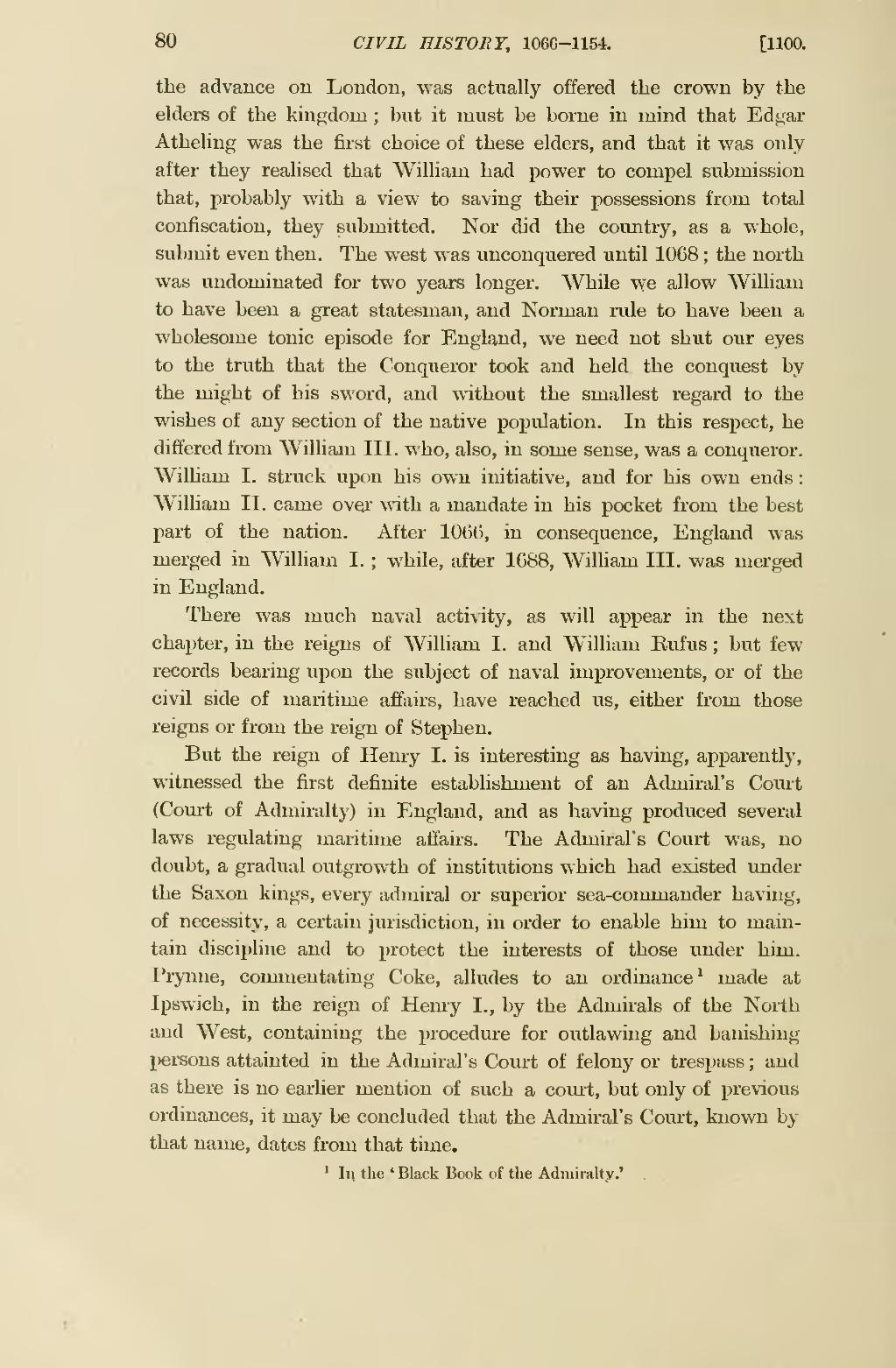the advance on London, was actually offered the crown by the elders of the kingdom; but it must be borne in mind that Edgar Atheling was the first choice of these elders, and that it was only after they realised that William had power to compel submission that, probably with a view to saving their possessions from total confiscation, they submitted. Nor did the country, as a whole, submit even then. The west was unconquered until 1068; the north was undominated for two years longer. While we allow William to have been a great statesman, and Norman rule to have been a wholesome tonic episode for England, we need not shut our eyes to the truth that the Conqueror took and held the conquest by the might of his sword, and without the smallest regard to the wishes of any section of the native population. In this respect, he differed from William III. who, also, in some sense, was a conqueror. William I. struck upon his own initiative, and for his own ends: William II. came over with a mandate in his pocket from the best part of the nation. After 1066, in consequence, England was merged in William I.; while, after 1688, William III. was merged in England.
There was much naval activity, as will appear in the next chapter, in the reigns of William I. and William Rufus; but few records bearing upon the subject of naval improvements, or of the civil side of maritime affairs, have reached us, either from those reigns or from the reign of Stephen.
But the reign of Henry I. is interesting as having, apparently, witnessed the first definite establishment of an Admiral's Court (Court of Admiralty) in England, and as having produced several laws regulating maritime affairs. The Admiral's Court was, no doubt, a gradual outgrowth of institutions which had existed under the Saxon kings, every admiral or superior sea-commander having, of necessity, a certain jurisdiction, in order to enable him to maintain discipline and to protect the interests of those under him. Prynne, commentating Coke, alludes to an ordinance[1] made at Ipswich, in the reign of Henry I., by the Admirals of the North and West, containing the procedure for outlawing and banishing persons attainted in the Admiral's Court of felony or trespass; and as there is no earlier mention of such a court, but only of previous ordinances, it my be concluded that the Admiral's Court, known by that name, dates from that time.
- ↑ In the 'Black Book of the Admiralty.'
